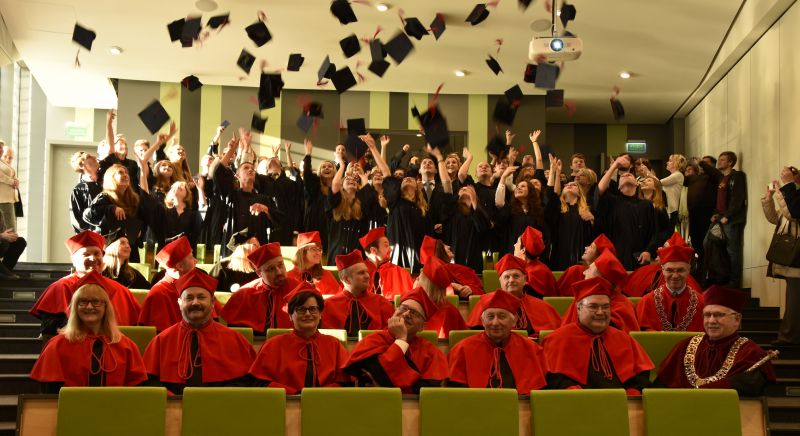About IFB
About Intercollegiate Faculty of Biotechnology
The Intercollegiate Faculty of Biotechnology of the University of Gdansk and the Medical University of Gdansk (IFB UG & MUG) was established in 1993, by the decision of the Senates of the University of Gdansk (UG) and the Medical University of Gdansk (MUG). The Faculty was created on the initiative of prof. Karol Taylor, prof. Anna Podhajska and prof. Wacław Szybalski. The Faculty is a unique entity in Poland in that it was formed by two universities. This encouraged an interdisciplinary nature of research and didactics that combines biomedical and bio-molecular issues and their applications in biotechnology for the improvement of health and quality of life.
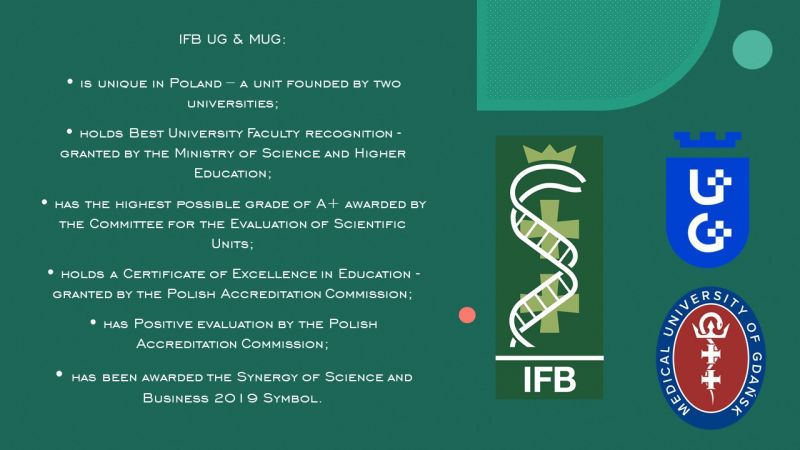
The Medical University of Gdansk was selected to the elite group of top 10 Polish universities distinguished in the prestigious competition of the Ministry of Science and Higher Education "Excellence Initiative - Research University". In addition, 20 universities were qualified to the "Excellence Initiative - Research University" program in its first stage, and the University of Gdansk was in this group. Moreover, in the "Perspektywy" ranking, MUG was once again recognized as the best medical university in Poland. Since 1999, the Faculty has been authorized to award doctorate status, and since 2010, also post-doctoral degrees in biological sciences, in the biochemistry discipline. The Faculty teaches at the undergraduate, post-graduate and doctoral level, and provides education to over 320 students including 90 doctoral students.
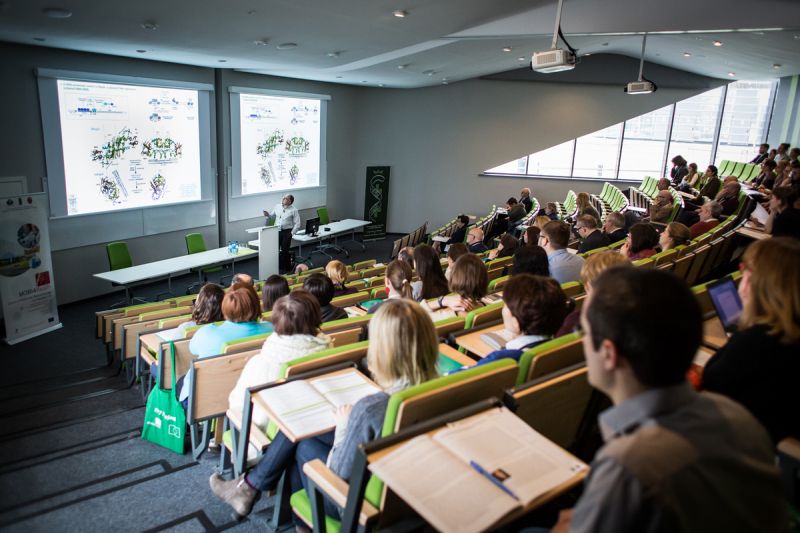
IFB UG & MUG is a leading scientific and teaching institution, which, since 2002, has held the status of European Centre of Excellence in Molecular Biomedicine. For years, IFB has been highly placed in the rankings of the Ministry of Science and Higher Education (MNiSW) on scientific effectiveness. In 2017, the Committee for the Evaluation of Scientific Units assessed the scientific and R&D activities of its scientific unit and awarded IFB the best possible grade of A+. The Faculty also conducts the highest rated teaching activity in the country. In 2019, the Polish Accreditation Commission (PKA) granted accreditations for the longest possible period of 5 years. In 2020, PKA awarded the faculty -indeed, the only one among all Biotechnology faculties - a Certificate of Excellence in Education in the category "Excellent degree programme - excellence in providing education".

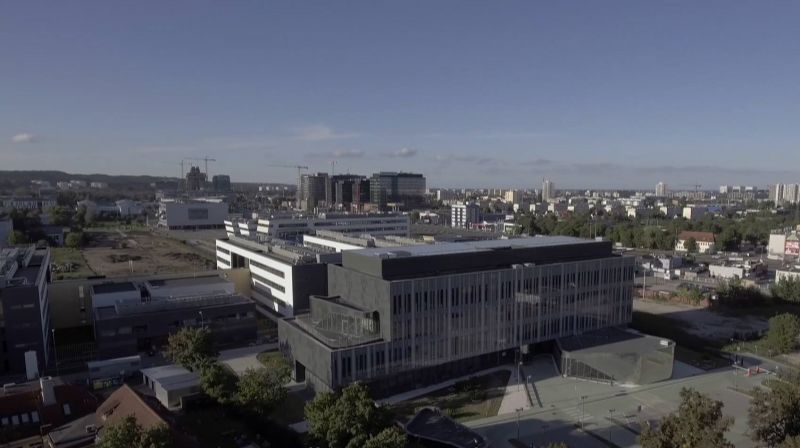
The Faculty’s main premises are the laboratories in the ultra-modern Institute of Biotechnology in Gdansk, at 58 Abraham St., (UG_Oliwa Campus) and the Laboratory Complex on the MUG Campus at 1 Dębinki St. The Faculty has state-of-the-art laboratories for molecular research with specialized apparatus, as well as an animal house and phytotron complex. At present, two laboratories at IFB UG and MUG work in the enhanced BSL-2 security system and we obtained a 4 million grant to upgrade one of them to work in the BSL-3+ system.
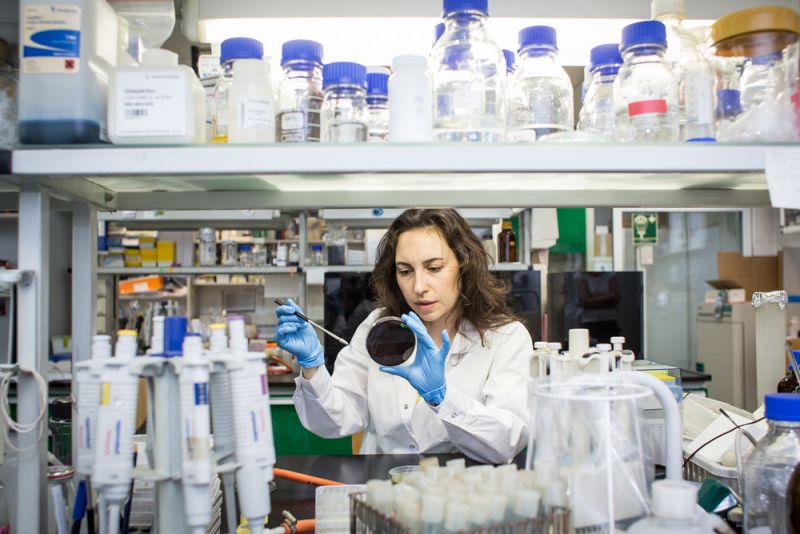
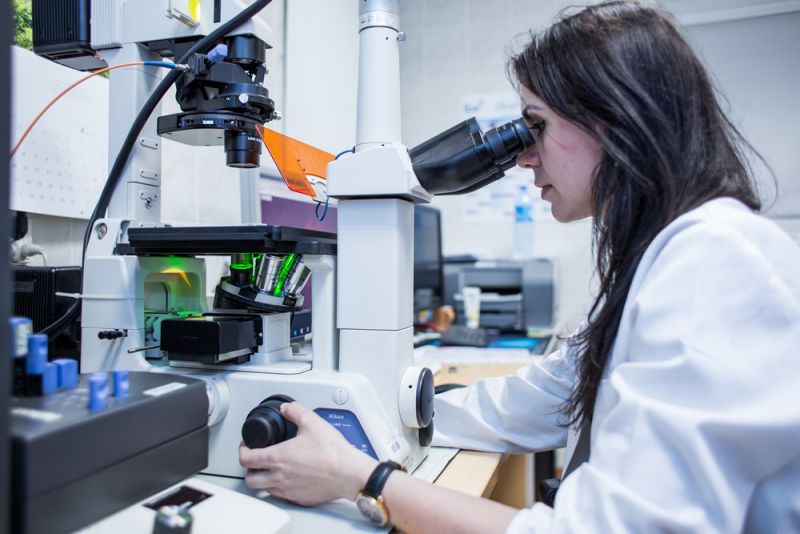
Research activity conducted at the Faculty is closely linked to a training programme involving the active participation of all its students in scientific research. We are among the world pioneers in chaperone protein research, protecting proteins from the effects of stress, DNA replication, biogenesis and the degradation of protein complexes. Furthermore, we are the only institution in Poland to conduct research into molecular virology, both at the fundamental level (studying the molecular basis of virus multiplication in the eukaryotic cell) and applied level (developing recombinant vaccines). We are also the only institution in Poland conducting molecular research into bacterial plant pathogens and the formation, development and metastasis of tumours (mainly breast cancer), as well as into new diagnostic and therapeutic methods. We have also achieved great success in the field of photodynamic therapy.

The Faculty’s strategic partners are the International Institute of Molecular and Cellular Biology (MIBMiK), the MOBI4Health international network of science and research centres and the ScanBalt BioRegion association (ScanBalt).
Both the Faculty’s research and education programmes are interdisciplinary and based on international cooperation. Currently, undergraduate and postgraduate studies are implemented in cooperation with the University of Houston Downtown, the University of Chicago and the Virginia State University. In addition, the Intercollegiate Doctoral School in Biotechnology of the University of Gdansk and Medical University of Gdansk is affiliated with the Faculty. Our students have the opportunity to study for their master’s thesis, and do both undergraduate and postgraduate scientific internships in foreign institutions. When developing educational programmes, we make use of the experience of our foreign partners and adhere to international standards. At the undergraduate degree program, an innovative curriculum based on Thematic Modules is delivered and at postgraduate level, classes are conducted largely in English. Thanks to the interdisciplinary character of the Faculty, both undergraduate and postgraduate students benefit from the research and teaching infrastructure offered by both universities – the University of Gdansk and the Medical University of Gdansk.
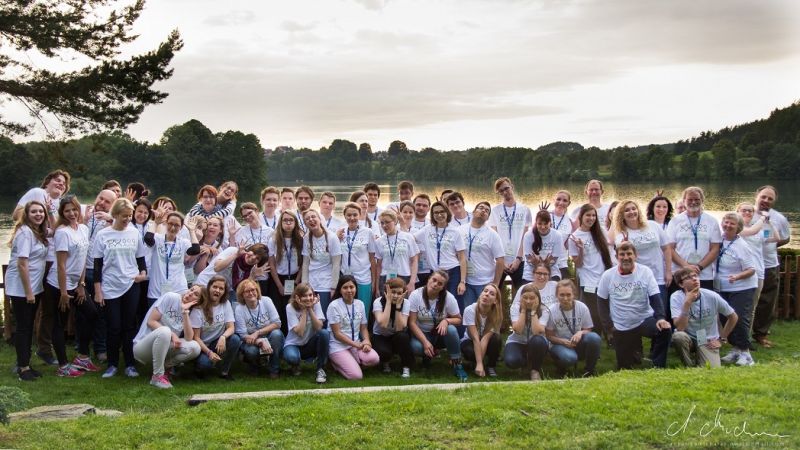

For the past 25 years, for young scientific staff, the Summer Schools of Biotechnology have been an integral part of their education and development. Lectures are given by outstanding speakers from Poland and abroad, including Nobel Prize winners such as Prof. Robert Huber. Apart from IFB students, students from other Research Units in Poland and abroad also take part in the schools. Co-organisers of the Summer Schools of Biotechnology have included, among others: FEBS, the Polish Academy of Science (PAN), the Russian Academy of Science, ScanBalt, the Maria Curie Training Network and FNP.
The high standard of education at the Faculty is evidenced by the employment of our graduates in leading scientific institutions at home and abroad (Karolinska Institut, Harvard University, Cambridge, the Royal College, MIBMiK, Institutes of the Polish Academy of Science) and in companies in the life-science sector (Procter & Gamble, Novartis, Crucell, Polpharma).
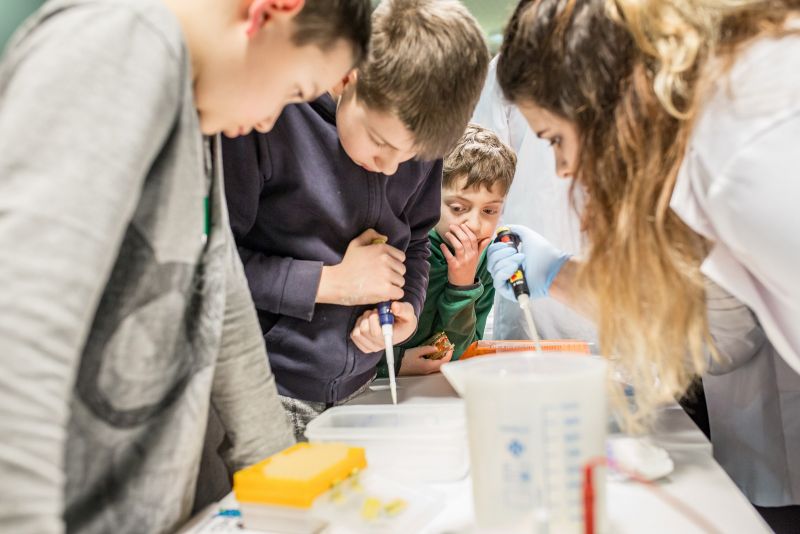
Find out about our research groups.
Check our study program and join IFB as a student.





